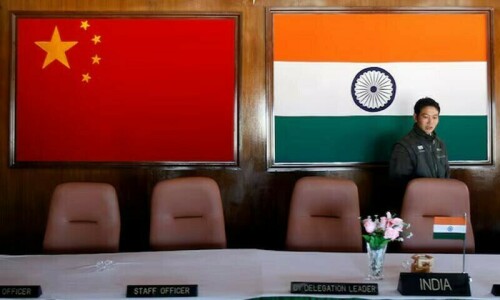KARACHI, July 4: Efforts to trace the defective portion of the world’s longest fibre-optic cable intensified 12 kilometres off the coast as another ship carrying equipment and technical experts arrived on Monday morning. The 92-party consortium that runs the world’s longest undersea fibre-optic cable, known as SEA-ME-WE-3, last week appointed a UAE-based company, E-Marine, to repair the fault.
E-Marine, whose first repair ship reached Karachi on Saturday morning, is owned by Etisalat which recently bought 26 per cent of the Pakistan Telecommunication Company for $2.59 billion. The consortium is headquartered in Singapore.
“Engineers of the new ship Niva, also sent in by E-Marine, have teamed up with their colleagues already seeking to trace the fault. They initially employed techniques of sonic testing and electroding to narrow down the defective portion of the fibre-optic cable to five kilometres. They are still localizing the fault and the repairs have not started,” said Mashkoor Hussain, senior executive vice-president (operations) of the PTCL.
Pakistan made an initial investment of $35 million in SEA-ME-WE-3 in 1999. It pays around $2.5 million as maintenance cost. The PTCL has to make no immediate payment to the consortium for the repairs.
Mr Hussain said that over 50 engineers aboard the ships and scores of PTCL technical experts were taking part in the round-the-clock repair operation.
“The 39,000-kilometre-long fibre-optic cable is buried in the sea in coastal waters. However, it lies on the seabed on the high seas. Mechanical arms from the ships will shortly pull up the fibre-optic cable from the seabed, inspect it, and replace it if necessary. The entire exercise will be closely watched by engineers on their monitors on the two ships, in the PTCL control centre and in Singapore,” he explained.
Mr Hussain made it clear that the fault would not be traced and repaired any time soon.
“The consortium scrapped the earlier proposal of carrying out the repairs in such a way as to cause the telecommunications networks of at least four countries to shut down. It was decided that this option would not be very helpful,” he said, adding that all the four countries — India, Djibouti, Oman and the United Arab Emirates — had agreed to a two-hour shutdown.














































Dear visitor, the comments section is undergoing an overhaul and will return soon.